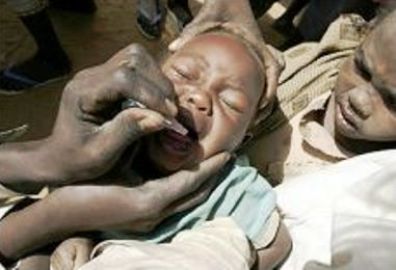Two million measles vaccines delivered to Sudan for mass immunisation
April 1, 2015 (KHARTOUM) – The first batch of 9.6 million doses of measles vaccines ordered to support a mass immunisation campaign arrived in Sudan on Tuesday.

The campaign is in response to an outbreak of measles across 29 localities in 16 of Sudan’s 18 states.
According to UNICEF, by 26 March the number of confirmed measles cases had reached 1,120. Kassala was the worst-affected state with 353 cases and two deaths followed by Red Sea with 205 cases and three deaths and North Darfur with 140 cases and 12 deaths.
The 9.6 million doses of measles vaccines and injectable supplies will be used to conduct a mass immunisation campaign targeting 7.9 million children aged from nine months to 15 years in the 26 worst-affected and 70 high risk localities.
UNICEF said it had received support for the immunisation campaign and order of vaccines through the ministry of health.
The arrival of the vaccines comes following the signing of the mid-term review report report of the 2013-2016 joint country programme of cooperation agreement between the Sudanese government and UNICEF.
The agreement aims to reach an estimated 3.8 million children across the country with health, education, water, sanitation, nutrition, hygiene promotion and protection interventions.
While UNICEF said Sudan had made some progress towards improving the health and quality of life for children across the country, more needed to be done.
“Despite the gains made, more still needs to be done to address the myriad and dire needs of children in Sudan,” said UNICEF representative Geert Cappelaere. This includes more investment in boosting school attendance levels, the management of acute malnutrition, sanitation coverage and reducing the outbreak of diseases.
(ST)
